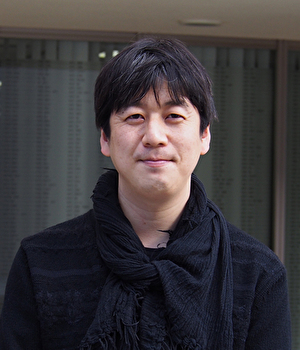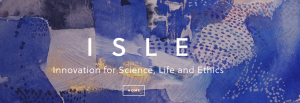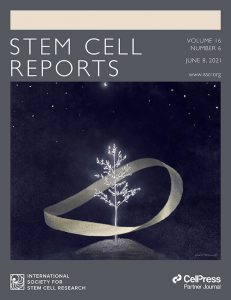
Jusaku Minari
Message from Jusaku Minari
Biomedical research, such as iPS cell research and genome research, is dramatically advancing. However, in translating this research development into clinical settings, it is important to not only promote science but also take into account its social implication. We would like to deliver the benefits of this science promotion to society under ethical, legal, and social considerations. In this process, through discussion with various international and domestic stakeholders, we hope to value the diversity and breadth of their perspectives.
Please contact me if you’re interested in working together.
Email: jusaku.minari*cira.kyoto-u.ac.jp(Please change* to @)
Biography
2005 B.S., Faculty of Environmental Engineering, The University of Kitakyushu
2006 M.S., Graduate School of Environmental Engineering, The University of Kitakyushu
2010 Ph.D., Graduate School of Environmental Engineering, The University of Kitakyushu
2010 Postdoctoral Researcher, Institute for Research in Humanities, Kyoto University
2013 Assistant Professor, Biomedical Ethics and Public Policy, Graduate School of
Medicine, Osaka University
2015 Deputy Director, Department of Research Infrastructure, Japan Agency for
Medical Research and Development (AMED)
2016 Assistant Professor, Biomedical Ethics and Public Policy, Graduate School of
Medicine, Osaka University
2017 Project Associate Professor, Uehiro Research Division for
iPS Cell Ethics, Center of iPS Cell Research and Application, Kyoto University
Position
- 2023 - Present
Ministry of the Environment
Member of Review Committee on the Epidemiological Research - 2020 - 2021
AMED* Program Officer (ELSI on Infectious Disease) - 2019 - Present
JST** Committee Member of Ethics on Genome Research
https://www.jst.go.jp/ristex/en/research-activities/elsi/genome/index.html - 2019 - Present
Collaboration with HeLEX (Faculty of Law, the University of Oxford)
https://www.law.ox.ac.uk/people/jusaku-minari - 2018 - Present
MEXT*** Committee Member of the Governmental Ethical Guidelines
(Human Genome Research and General Medical Research) - 2017 - 2021
JST** Program Advisor (Future Society & AI) - 2016 - Present
AMED Program Officer (Genome Research) - 2016 - 2018
AMED Program Officer (ELSI on Genome Research)
*AMED: Japan Agency for Medical Research and Development
**JST: Japan Science and Technology Agency
***MEXT: Ministry of Education, Culture, Sports, Science and Technology
Research activities
Research and educational activities
- Invited talk.
J. Minari.
Art, Ethics and Genomic Progress: Insights from Japan.
Leuven Institute for Genetics and Society (LIGAS),
KU Leuven, Belgium, 2025. - Invited talk.
J. Minari and K. Takashima.
Ethical and legal considerations of biomedical research: A Japanese perspective.
Trends and Dynamics in Health and Emerging Technologies,
University of Oxford (Faculty of Law). Oxford, UK, 2025. - Invited talk.
J. Minari.
Ethics in action: Japan's experience with emerging technology in medical care and clinical research.
Universiti Malaya Medical Centre, Malaysia, 2025. - Invited participants.
J. Minari.
Tokyo workshop: Accelerating the tech-driven bioeconomy.
World Economic Forum, Tokyo, 2024. - Interviews by the Center for ELSI Resources & Analysis (CERA), the US, 2024.
https://elsihub.org/news/elsi-abroad-spotlight-japan
(CERA is co-led by the Stanford Center for Biomedical Ethics and the Division of Ethics at Columbia University, in partnership with The Hastings Center and the Case Western Reserve University Department of Bioethics) - Invited panelists.
J. Minari.
UK-Japan engineering biology seminar: Panel discussion on responsible research innovation. British Embassy Tokyo, 2024. - Reviewers (Individuals)
Laboratory biosecurity guidance. World Health Organization, 2024.(PDF)
https://iris.who.int/handle/10665/377754 -
"Ambiguously Certain." tupera tupera, 2023.

https://www.cira.kyoto-u.ac.jp/e/pressrelease/news/240312-100000.html<Related to this work>
https://www.cira.kyoto-u.ac.jp/e/pressrelease/newsletter/241106-000001.html
https://awrd.com/en/blog/2024/5/tupera-tupera - nakaban, "Torata's Apple (Torata no ringo)." Iwanami Shoten, 2023 (in Japanese).

https://www.iwanami.co.jp/book/b621811.html - Oral presentations.
J. Minari and A. Kiriyama.
A Japanese perspective on regulation and public communication regarding human-virus research.
Cell Symposium: Viruses in Health and Disease. Sitges, Spain, 2023.
https://www.cell-symposia.com/Viruses-2023/conference-program.html - ReDURC "Dual-use perspectives." Nippon Design Center, 2022.

https://www.instagram.com/re_durc/(Instagram) - The Innovation for Science, Life, and Ethics (ISLE) project
Supported by Research Institute of Science and Technology for Society (RISTEX), Japan Science and Technology Agency (JST)
https://www.islepj.com/
Internship Participants Accepted
Waseda University, Japan (Graduate School of Advanced Science and
Engineering, Master's 1st year student, 2025)
[CiRA Research Internship Program]
Tokyo University of the Arts, Japan (Graduate School of Fine Arts, Doctoral
course 1st year student, 2025)
[CiRA Research Internship Program]
Massachusetts Institute of Technology, USA (Biology, 2nd year student, 2025)
[MIT-Japan Program (MISTI)]
University College London, UK (Neuroscience, 3rd year student, 2024)
[CiRA Research Internship Program]
University of Bristol, UK (Medical School, 6th year student, 2023)
[Self-funded]
Imperial College London, UK (Department of Science, 2nd year student, 2019)
[CiRA Research Internship Program]
Osaka University, Japan (Faculty of Engineering, 4th year student, 2019)
[CiRA Research Internship Program]
Selected publications
- T. Kubota, A. Raz and J. Minari. Invigorating ELSI: Reflexive approaches to enhance policy development. Trends Genet, 41:955–957, 2025.
- TH. Sasongko, Gunadi, BP. Hoh, J. Minari, SW. Seow and V. Shotelersuk. The ASEAN genome consortium: Advancing equitable precision medicine through regional solidarity. The Lancet Regional Health – Western Pacific (Correspondence), 60:101611, 2025.
- J. Minari. The use of AI to facilitate the appropriate development of genomic medicine. Idenshi igaku, 14:75–80, 2024 (in Japanese).
- O. Andrusier, A. Raz and J. Minari. Cultivating awareness of donation in cutting-edge allogenic cell therapies. Cell Stem Cell (Letter), 31:947–948, 2024.
- J. Minari. “Challenges and perspectives on biomedical research,” in Introduction to Bioethics. ed. M. Maruyama (Daigaku Kyoiku Shuppan, 2024) (in Japanese).
- A. Hibino, J. Minari, K. Takahashi, Y. Sugiyama and S. Kawana. The cultural construction of cellular agriculture food: Through the lens of the whole-parts framework for meat. Frontiers in Sustainable Food Systems (Perspective), 8:1358012, 2024.
- H. Gaydarska, K. Takashima, S. Shahrier, A. Raz and J. Minari. The interplay of ethics and genetic technologies in balancing the social valuation of the human genome in UNESCO declarations. European Journal of Human Genetics, 32:725–730, 2024.
- G. Yoshizawa, N. Shinomiya, S. Kawamoto, N. Kawahara, D. Kiga, K. Hanaki and J. Minari. Limiting open science? Three approaches to bottom-up governance of dual-use research of concern. Pathogens and Global Health (Review), 118:285–294, 2024.
- S. Shahrier, H. Gaydarska, K. Takashima, G. Yoshizawa and J. Minari. A conceptual analysis of public opinion regarding genome research in Japan. Frontiers in Genetics (Original Research), 14:1170794, 2023.
- A. Raz, J. Minari, S. Schicktanz, T. Sharon and G. Werner-Felmayer. Data-intensive medicine and healthcare: Ethical and social implications in the era of artificial intelligence and automated decision-making. Frontiers in Genetics (Editorial), 14:1280344, 2023.
- J. Minari. “Regulation of genetic information and biobanking in Japan” in Practical Handbook for Handling Human Biospecimens and Data. su. T. Morisaki, H. Nishihara, Y. Miyaji. ed. S. Ogishima (Yodosha, 2023) (in Japanese).
- K. Takashima, J. Minari, S. Chan and K. Muto. Hope for the best, but prepare for the worst: Social media posted by participants in stem cell clinical trials. Regenerative Therapy (Commentary), 24:294–297, 2023.
- A. Raz and J. Minari. AI-driven risk scores: Should social scoring and polygenic scores based on ethnicity be equally prohibited? Frontiers in Genetics (Opinion), 14:1169580, 2023.
- A. Raz, J. Minari, K. Takashima, H. Gaydarska, Y. Hashiloni-Dolev and R. Horn. Old and new challenges regarding comparable and viable data sharing in population-scale genomic research. European Journal of Human Genetics (Viewpoint), 31:617–618, 2023.
- K. Takashima, T. Soma, K. Muto, K. Nishida and J. Minari. Learning to listen: A complementary approach to informed consent for patients with visual impairments. Stem Cell Reports (Forum), 17:2582–2584, 2022.
- J. Meszaros, J. Minari and I. Huys. The future regulation of artificial intelligence systems in healthcare services and medical research in the European Union. Frontiers in Genetics (Policy and Practice Reviews), 13:927721, 2022.
- A. Raz, S. Timmermans, G. Eyal, K. Brothers and J. Minari. Challenges for precision public health communication in the era of genomic medicine. Genetics in Medicine (Special Article), 24:9, 2022.
- N. Shinomiya, J. Minari, G. Yoshizawa, M. Dando and L. Shang. Reconsidering the need for gain-of-function research on enhanced potential pandemic pathogens in the post-COVID-19 era. Frontiers in Bioengineering and Biotechnology (Policy and Practice Reviews), 10:966586, 2022.
- J. Minari, N. Shinomiya, K. Takashima and G. Yoshizawa. Contiguous governance of synchronic and diachronic changes for the use of genome editing technologies. Frontiers in Political Science (Perspective), 4:825496, 2022.
- R. Milne, K. I. Morley, M. A. Almarri, J. Atutornu, E. E. Baranova, P. Bevan, M. Cerezo, Y. Cong, A. Costa, C. Feijao, C. De Freitas, J. Fernow, P. Goodhand, Q. Hasan, A. Hibino, G. Houeland, H. C. Howard, S. Z. Hussain, C. I. Malmgren, V. L. Izhevskaya, A. Jędrzejak, C. Jinhong, M. Kimura, E. Kleiderman, K. Liu, D. Mascalzoni, Á. Mendes, J. Minari, D. Nicol, E. Niemiec, C. Patch, B. Prainsack, M. Rivière, L. Robarts, J. Roberts, V. Romano, H. A. Sheerah, J. Smith, A. Soulier, C. Steed, V. Stefànsdóttir, C. Tandre, A. Thorogood, T. H. Voigt, N. Wang, G. Yoshizawa and A. Middleton. Return of genomic results does not motivate intent to participate in research for all: Perspectives across 22 countries. Genetics in Medicine, 24:1120–1129, 2022.
- J. Minari, M. Yokono, K. Takashima, M. Kokado. R. Ida and Y. Hishiyama. Looking back: Three key lessons from 20 years of shaping Japanese genome research regulations. Journal of Human Genetics (Perspective), 66:1039–1041, 2021.
- K. Takashima, M. Morrison and J. Minari. Reflection on the enactment and impact of safety laws for regenerative medicine in Japan. Stem Cell Reports (Perspective), 16:6, 2021.
This article is selected as the cover image for the journal. For details, please visit Stem Cell Reports website
- R. Milne, K. I. Morley, M. A. Almarri, S. Anwer, J. Atutornu, E. E. Baranova, P. Bevan, M. Cerezo, Y. Cong, A. Costa, C. Critchley, J. Fernow, P. Goodhand, Q. Hasan, A. Hibino, G. Houeland, H. C. Howard, S. Z. Hussain, C. I. Malmgren, V. L. Izhevskaya, A. Jędrzejak, C. Jinhong, M. Kimura, E. Kleiderman, B. Leach, K. Liu, D. Mascalzoni, Á. Mendes, J. Minari, D. Nicol, E. Niemiec, C. Patch, J. Pollard, B. Prainsack, M. Rivière, L. Robarts, J. Roberts, V. Romano, H. A. Sheerah, J. Smith, A. Soulier, C. Steed, V. Stefànsdóttir, C. Tandre, A. Thorogood, T. H. Voigt, N. Wang, A. V. West, G. Yoshizawa and A. Middleton. Demonstrating trustworthiness when collecting and sharing genomic data: Public views across 22 countries. Genome Medicine, 13:92, 2021.
- J. Minari. Genomics and society. BIO Clinica, 36:51–55, 2021 (in Japanese).
- K. Mikami, A. Ema, J. Minari and G. Yoshizawa. ELSI is our next battlefield. East Asian Science, Technology and Society: An International Journal, 15:86–96, 2021.
- J. Minari, G. Yoshizawa and N. Shinomiya. COVID-19 and the boundaries of open science and innovation: Lesson of traceability from genomic data sharing and biosecurity. EMBO Reports, e51773, 2020.
- A. Middleton, R. Milne, M. A. Almarri, S. Anwer, J. Atutornu, E. E. Baranova, P. Bevan, M. Cerezo, Y. Cong, C. Critchley, J. Fernow, P. Goodhand, Q. Hasan, A. Hibino, G. Houeland, H. C. Howard, S. Z. Hussain, C. I. Malmgren, V. L. Izhevskaya, A. Jędrzejak, C. Jinhong, M. Kimura, E. Kleiderman, B. Leach, K. Liu, D. Mascalzoni, A. Mendes, J. Minari, N. Wang, D. Nicol, E. Niemiec, C. Patch, J. Pollard, B. Prainsack, M. Rivière, L. Robarts, J. Roberts, V. Romano, H. A. Sheerah, J. Smith, A. Soulier, C. Steed, V. Stefànsdóttir, C. Tandre, A. Thorogood, T. H. Voigt, A. V. West, G. Yoshizawa and K. I. Morley. Global public perceptions of genomic data sharing: What shapes the willingness to donate DNA and health data? The American Journal of Human Genetics, 107:743–752, 2020.
- M. Prictor, M. A. Lewis, A. J. Newson, M. Haas, S. Baba, H. Kim, M. Kokado, J. Minari, F. Molnár-Gábor, B. Yamamoto, J. Kaye and H. J. A. Teare. Dynamic consent: An evaluation and reporting framework. Journal of Empirical Research on Human Research Ethics, 15:175–186, 2020.
- G. Yoshizawa, and J. Minari. Next nature and next generations: Dialogue at Sakushima, Sadogashima and Teshima. Islands, 261:68–75, 2020 (in Japanese).
- A. Hibino, G. Yoshizawa and J. Minari. Meaning of ambiguity: A Japanese survey on synthetic biology and genome editing. Frontiers in Sociology (Brief Research Report), 4:81, 2019.
- Y. Hishiyama, J. Minari and N. Suganuma. The survey of public perception and general knowledge of genomic research and medicine in Japan conducted by the Japan Agency for Medical Research and Development. Journal of Human Genetics, 64:397–407, 2019.
- J. Minari. Ethical, social and policy considerations for realizing genomic medicine. BIO Clinica, 33:63–66, 2018 (in Japanese).
- J. Minari. “Genomic medicine,” in Bioethics: Inheritance and development. ed. M. Maruyama (Kawashima Shoten, 2018) (in Japanese).
- J. Minari, K. B. Brothers and M. Morrison. Tensions in ethics and policy created by National Precision Medicine Programs. Human Genomics (Opinion Article), 12:22, 2018.
- J. Minari, O. Kato, M. Sakurai and A. Saito. The novel approach of AMED in realizing genomic medicine: The process of achieving the AMED data sharing policy. Idenshi Igaku MOOK, 33:168–172, 2018 (in Japanese).
- J. Kaye, S. F. Terry, E. Juengst, S. Coy, J. R. Harris, D. Chalmers, E. S. Dove, I. Budin-Ljosne, C. Adebamowo, E. Ogbe, L. Bezuidenhout, M. Morrison, J. T. Minion, M. J. Murtagh, J. Minari, H. Teare, R. Isasi, K. Kato, E. Rial-Sebbag, P. Marshall, B. Koenig and A. Cambon-Thomsen. Including all voices in international data-sharing governance. Human Genomics (Opinion Article), 12:13, 2018.
- J. Minari. Island lessons: Inheritance, solidarity, creativity (Considerations of islands, science and technologies and art). Islands, 253:56–59, 2018 (in Japanese).
- J. Minari and G. Yoshizawa. Ethics policy and public engagement in biomedical research on genomic information. Journal of Medicine, Life and Ethics, Society, 14:52–60, 2017 (in Japanese).
- V. Coathup, H. Teare, J. Minari, G. Yoshizawa, J. Kaye, M. Takahashi and K. Kato. Using digital technologies to engage with medical research: Views of myotonic dystrophy patients in Japan. BMC Medical Ethics, 17:51, 2016.
- D. Chalmers, D. Nicol, J. Kaye, J. Bell, A. V. Campbell, C. W. Ho, K. Kato, J. Minari, C. H. Ho, C. Mitchell, F. Molnár-Gábor, M. Otlowski, D. Thiel, S. M. Fullerton and T. Whitton. Has the biobank bubble burst? Withstanding the challenges for sustainable biobanking in the digital era. BMC Medical Ethics (Review), 17:39, 2016.
- J. Minari. Genomic data sharing in the personal genome era: Data sharing policy and ethical considerations. Journal of Medicine, Life and Ethics, Society, 12:105–114, 2015 (in Japanese).
- J. Minari, H. Teare, C. Mitchell, J. Kaye and K. Kato. The emerging need for family-centric initiatives for obtaining consent in personal genome research. Genome Medicine (Comment), 6:118, 2014.
- J. Minari, D. Chalmers and K. Kato. Return of genetic research results: The Japanese experience and its implications for the international debate. SCRIPTed (Analysis), 11:180–192, 2014.
- G. Yoshizawa, C. W. Ho, W. Zhu, C. Hu, Y. Syukriani, I. Lee, H. Kim, D. F. Tsai, J. Minari and K. Kato. ELSI practices in genomic research in East Asia: Implications for research collaboration and public participation. Genome Medicine (Review), 6:39, 2014.
- J. Minari, T. Shirai and K. Kato. Ethical considerations of research policy for personal genome analysis: The approach of the Genome Science Project in Japan. Life Sciences, Society and Policy, 10:4, 2014.
- J. Minari and K. Kato. Research governance in the personal genome era. Medicine and Drug Journal, 50:55–58, 2014 (in Japanese).


